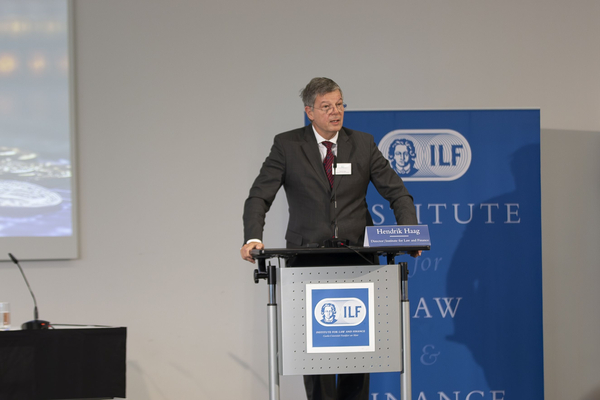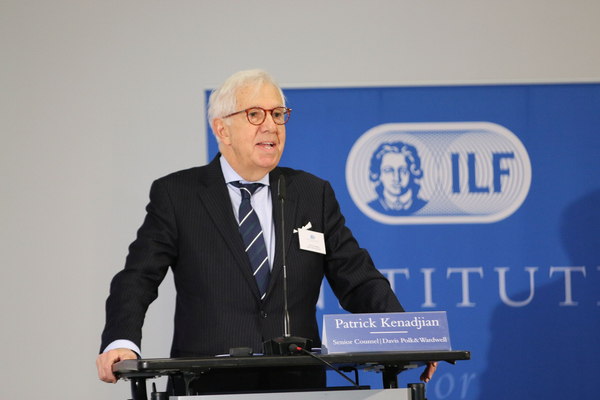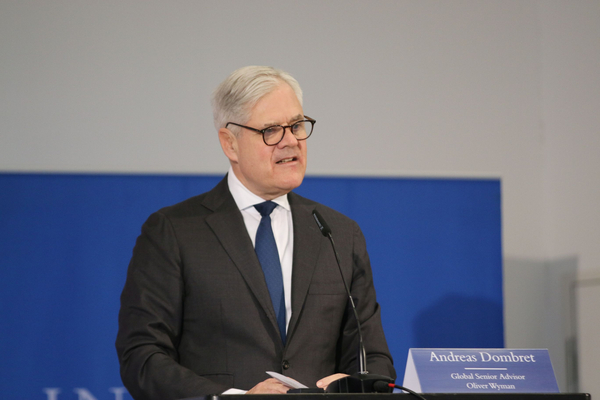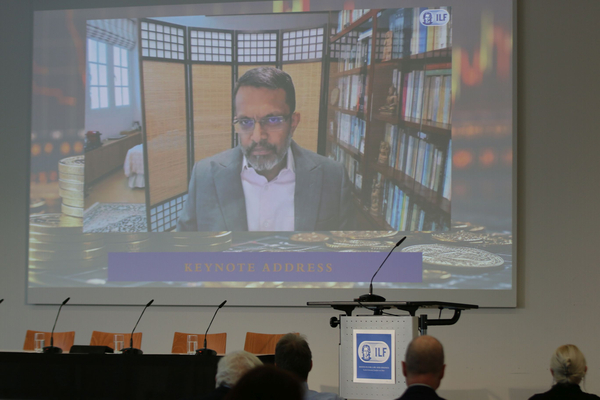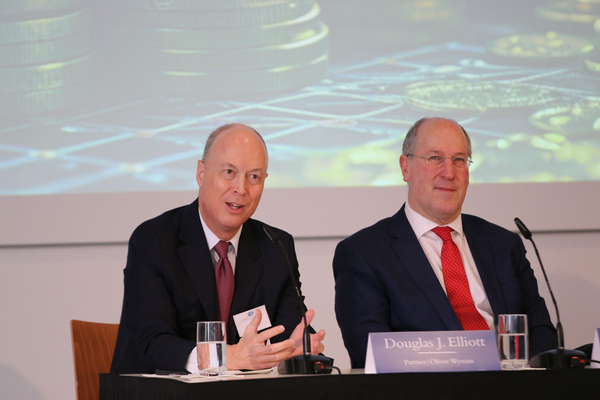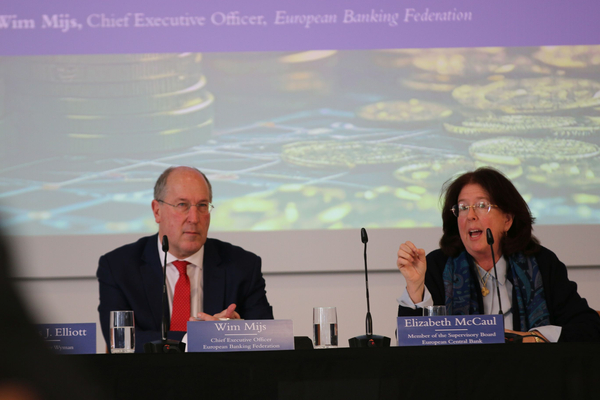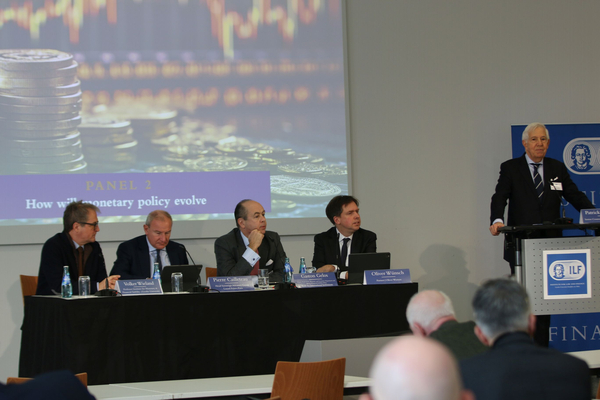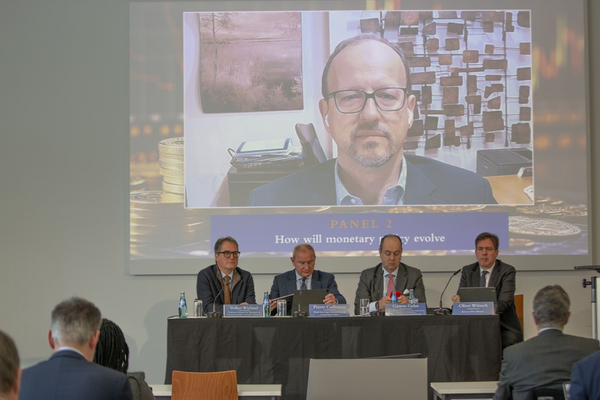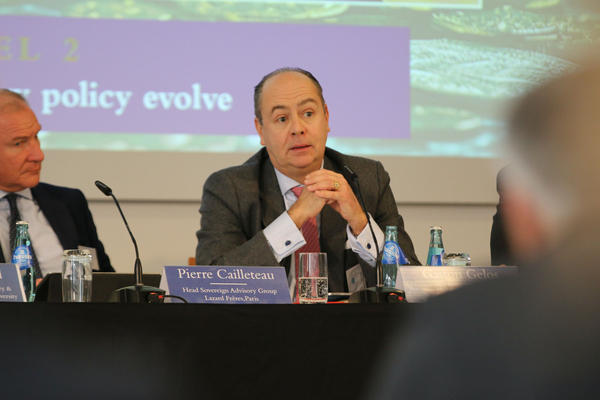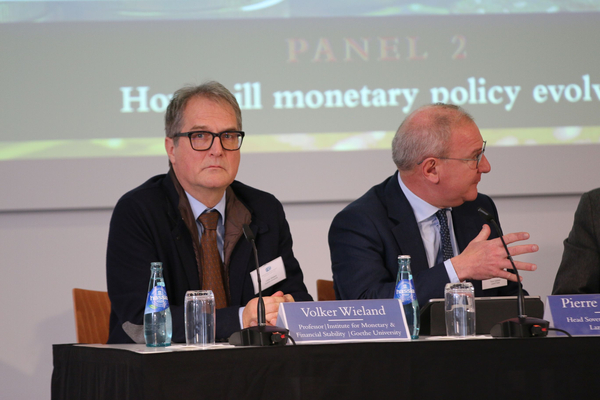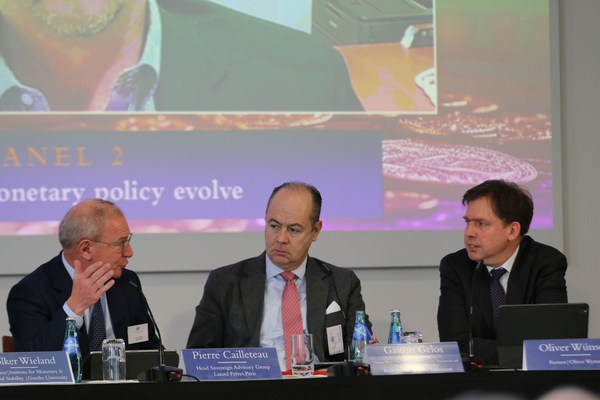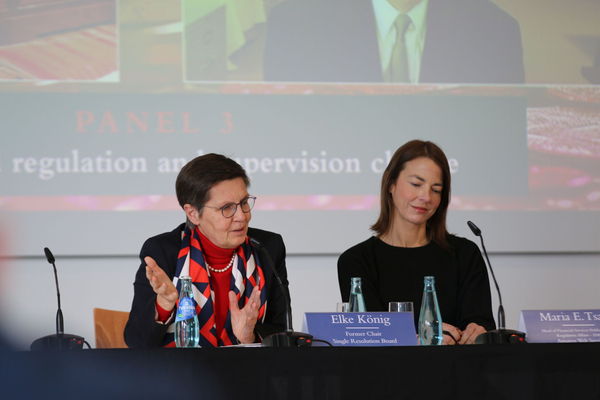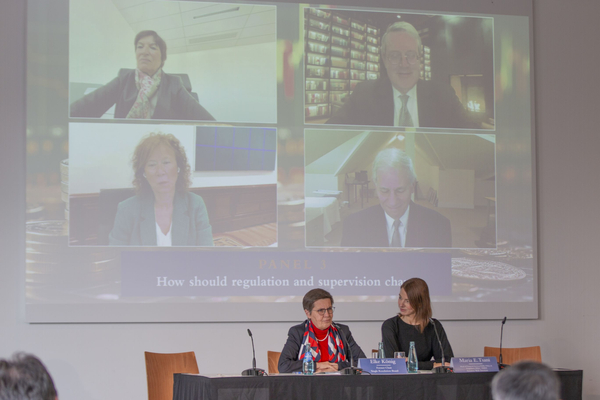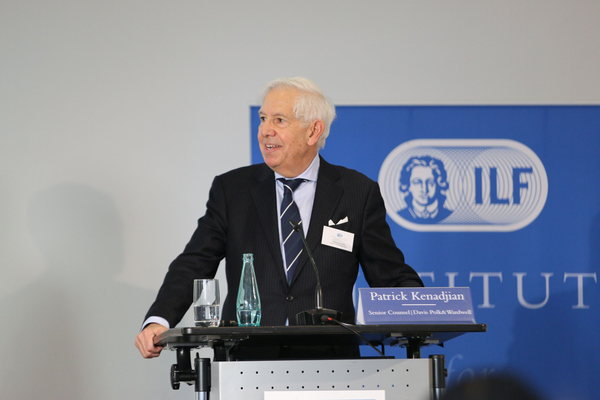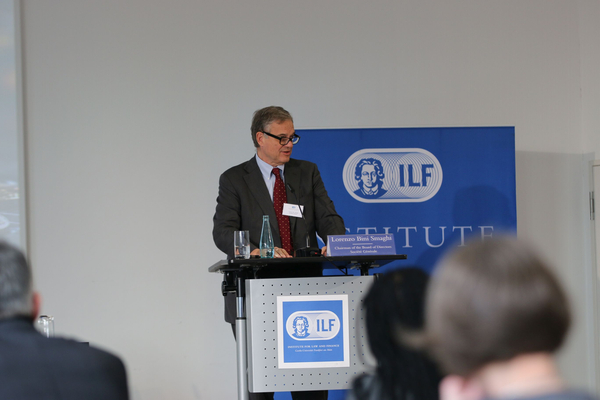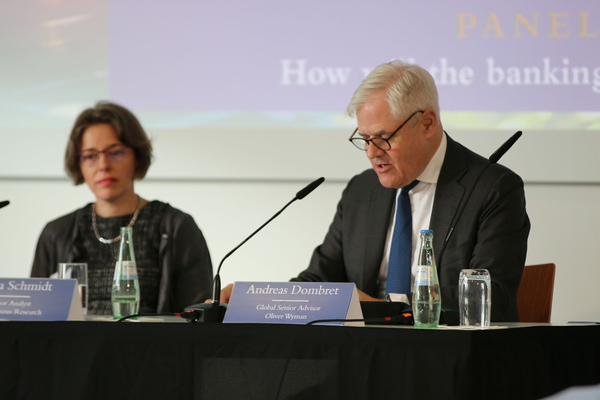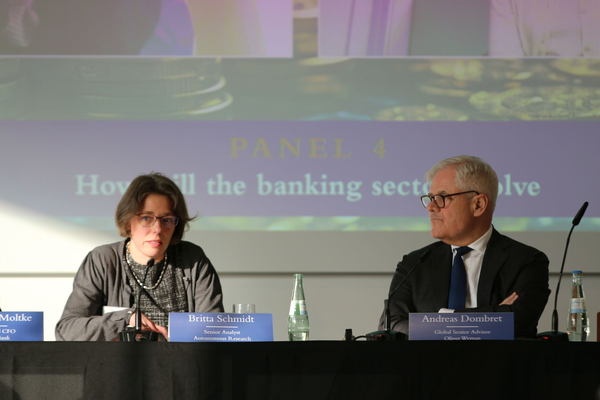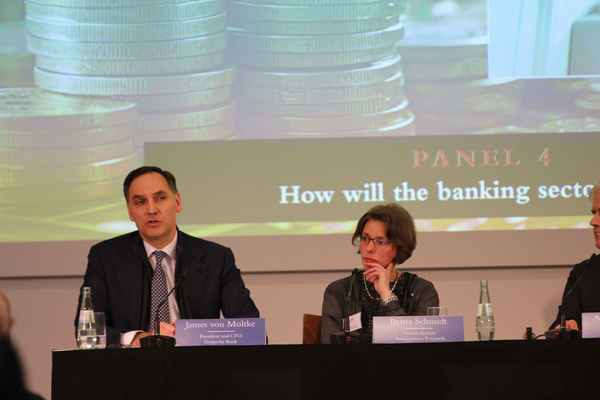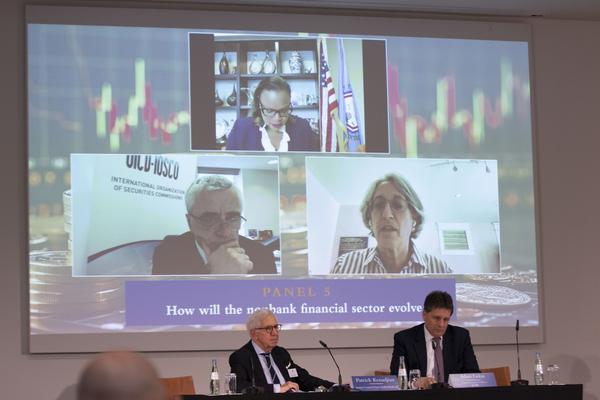On 19 January 2024, the ILF hosted its 12th Conference on the Future of the Financial Sector, co-chaired by Andreas Dombret and Patrick Kenadjian, in conjunction with our Knowledge Partner Oliver Wyman and with the support of Amazon Web Services, on the topic of “Navigating higher rates, volatility and liquidity crises: Finance and Regulation in the New Monetary Order”
The day long conference included two keynote addresses and five panels which brought together prominent representatives of the public sector, including the former Managing Director of the Monetary Authority of Singapore, the Chairman of the US Federal Deposit Insurance Corporation, the former Vice Chairman for Supervision of the US Board of Governors of the Federal Reserve System, the Secretary General of the French market supervisory authority, the Deputy Governor of the Bank of Spain, a Commissioner of the US Commodity Futures Corporation, a member of the Supervisory Board of the European Central Bank, the Head of Financial Stability Policy at the Bank for International Settlements and the Secretary General of IOSCO, as well as senior representatives of the private sector, including the Chairman of the Board of Société Générale, the President and CFO of Deutsche Bank, the Chairman of the Board of UniCredit, the co-founder and former Vice Chair of BlackRock and distinguished academics from the US and Germany.
The program covered an overview of the factors influencing inflation and leading to tighter regulation; an analysis of the impact on the financial sector of the central banks’ “low for long” policies and the difficulties financial institutions have faced as the central banks exited those policies; why central banks were caught off guard by the rise of inflation, whether we are entering an era of “high for longer”, what industry sectors are likely to be most vulnerable to the current changes in monetary policy and how the current changes in monetary policy are likely to affect fiscal policy; the lessons from the banking turmoil of March 2023 for supervision, resolution and regulation and what the current agenda for reform in each of these areas should be; why European banks continue to trade well below book value and what implications this may have for financial stability; what effect low growth in the EU may have on bank profitability, whether the banks can be expected to provide the funds needed to finance digital transformation and climate transition and what the March 2023 bank turmoil tells us about bank liquidity; and what the growth of the nonbank sector portends, what dangers regulators see in it and how the regulation of this exceedingly diverse sector should evolve.
The conference delivered valuable insights into the development in each of the areas examined, from the drivers of inflation, to the motivations of the central banks and to particular areas of vulnerability in each sector being examined. However, there was a general recognition that we are still at the beginning of the transformation of the financial sector resulting from the change in monetary policy, and that the final form that transformation will take will depend largely upon the future direction of those policies, which at this point is still far from clear.
